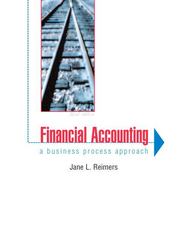Question
Case study: A Few Good People: Several years ago a very successful CEO and principal stockholder in a chemical company came to speak to the
Case study:
A Few Good People: Several years ago a very successful CEO and principal stockholder in a chemical company came to speak to the students at William and Mary. Our speaker is an entrepreneur who was involved with the start-up of his company. He is financially very successful and at the time he spoke to W&M students he was a member of the advisory board of a business school in his home city. Our speaker revealed that he is quite comfortable making economic trade-offs between fines for chemical pollution of the environment and business profitability. If the expenses related to fines plus the costs of paying-off any officials are less than the gains to be had from low-cost, high-pollution production, he believes the decision is simply a matter of evaluating the cash flows. Our speaker has business operations in many parts of the world and he indicated that getting around pollution problems is often more complicated than simply paying fines. In many countries it is helpful or even necessary to bribe government officials. Bribes might be paid to high-ranking officials who can influence the legislative process or make decisions to approve plant operations and locations. Bribes might also be paid to local officials to overlook violations or to avoid enforcing existing laws. Of course, it goes without saying, the bribes only make business sense if the financial advantages gained are greater than the cost of the bribes. Our speaker complained that under the Foreign Corrupt Practices Act (FPCA) the United States in addition to civil penalties can impose criminal penalties for certain "corrupt" practices possibly including some of the bribery practices described above. He noted that other countries regard these business practices as civil problems that may or may not result in fines. He argued that on a "level playing field" the United States should not subject him to exposure to jail-time when business people from other countries can pay for their premeditated transgressions with fines. Our speaker also identified new international business opportunities by naming countries more welcoming to chemical production because of their lax, unenforced, or non-existent environmental restrictions. He ended his remarks by welcoming inquiries from interested students. He was, as he said, always on the watch for a "few good people" to add to his staff. Our guest was controversial. Some students were upset that such a politically incorrect speaker could have slipped by the speakers' committee. They asked, "How could we expose students to such a pernicious influence?" Other students found themselves more interested in the speaker's formula for success. The speaker did surprise most people in the audience both with his candor and his business practices. As the event progressed the speaker became aware that he was not receiving the admiration and appreciation he expected. Towards the end of his time, he became far less comfortable discussing his leadership, and he has not returned.
Question:
- When this executive interviews prospective new hires for his company, what qualities do you think he is seeking in those "few good people" to whom he extends offers?
- Subsequent to passing the FCPA in 1977, the United States has influenced more than 30 other nations to pass comparable legislation. While the speaker clearly saw the FCPA as being anti-business, it is safe to assume that many other businesses (especially large and influential businesses) did not oppose the FCPA (otherwise, it almost certainly would not have passed the U.S. Congress). The FPCA is an example of a "social contract." This legislation is not applicable to any practice that is found to be corrupt, rather it is written to address specific corrupt practices included in the FCPA such as bribing foreign officials to influence their decision to make purchases (e.g., airplanes). Discuss why business leaders and companies other than the speaker in the case who are involved in global commerce would support the FCPA (and disagree with the speaker).
Step by Step Solution
There are 3 Steps involved in it
Step: 1

Get Instant Access to Expert-Tailored Solutions
See step-by-step solutions with expert insights and AI powered tools for academic success
Step: 2

Step: 3

Ace Your Homework with AI
Get the answers you need in no time with our AI-driven, step-by-step assistance
Get Started


